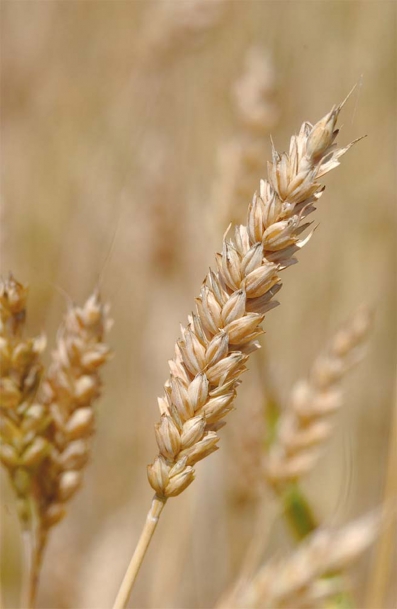Why More People Are Eating Less Grain
Against the Grain
It’s the beginning of a new year, and after all that wonderful holiday eating, resolutions are under way. Many people resolve to make changes to their eating habits, like consuming fewer baked goods. These treats are often high in calories, carbohydrates, and a protein becoming more commonly avoided: gluten. Gluten-free foods have been taking up the shelves in grocery stores, especially in the health food aisle. But is avoiding gluten part of a healthy diet?
For some people, the answer is yes. Mary Finckenor, a registered dietician at Chambers Center for Well Being in Morristown, says certain people experience adverse reactions after consuming it. “Gluten is found in a lot of grains, mostly wheat, rye, and barley,” she says. “It’s the Latin word for ‘glue’—it’s what allows pizza dough and bread to stretch.” Those with gluten sensitivities can experience a variety of symptoms, including difficulty concentrating, lethargy, and digestive issues.
“When people cannot break gluten down, it sits in the small intestine and then the large intestine, where bacteria forms to break it down, creating gas and other painful gastrointestinal issues,” says Finckenor. She says that avoiding gluten can be tricky because it’s in so many of the foods we eat.
“Though oats technically don’t have gluten, they can easily be cross-contaminated if they are grown near wheat fields,” she says. “Additionally, many people think they are avoiding gluten by consuming foods with ingredients like durum, semolina, graham, faro, and kamut— but many do not know that all these are all derived from wheat.”
Finckenor suggests that people who have noticeable reactions after consuming foods made with gluten should try cutting out the major sources, like wheat, rye and barley, as well as pastas and other processed grain products to see if it makes a difference.
“The noticeable rise of gluten sensitivity has forced people to ask why, and it really comes down to food source,” says Robin DeCiccio, holistic nutritionist with the Graf Center for Integrative Medicine at Englewood Hospital.
“The wheat people are eating now is not the same wheat by any means that our parents, grandparents or great-grandparents ate when they were growing up.”
DeCiccio explains that this is because much of today’s wheat tends to be processed to remove the bran and the endosperm, which are essential sources of fiber, vitamins and minerals.
“You need these components. Protein and fiber help keep you full and your blood sugar stable. Modern wheat is so low in fiber that it can elevate blood sugar just as much as a candy bar.”
Instead, she encourages people to focus on whole grains that aren’t tampered with. “Quinoa, buckwheat, amaranth, millet, steel-cut oats—the grain is still intact. When you eat foods that are less processed, the body digests it like it’s supposed to. Consuming whole foods prevents inflammation rather than increasing it.”
DeCicco adds that avoiding gluten won’t automatically decrease inflammation, which has many causes. Many gluten-free foods are still full of processed ingredients and refined carbs and sugars— like potato starch, tapioca starch and cornstarch—and tend to be low in fiber, so they still cause blood sugar to spike.
“The more you eat things that contribute to inflammation and the creation of antibodies, the more you’re attacking your own body. What develops is a slew of medical issues because your immune system begins to shut down.”
One major medical issue on the rise is celiac disease, an autoimmune disease caused by the body’s extreme inability to process gluten. When someone has celiac disease, the autoimmune response is severe and can be damaging to the body.
“The attack leads to damage to the villi, which are finger-like projections in the small intestine that absorb nutrients from food,” says Julianne Chlodnicki, a registered dietician with Barnabas Health in Livingston. “When someone with celiac disease consumes gluten, the villi flatten down, which greatly decreases the absorption of nutrients. Imagine if your body isn’t getting the nutrients it needs—it won’t be able to function properly.”
Chlodnicki adds that, undiagnosed, celiac disease can have long-term effects and bring on other autoimmune diseases like rheumatoid arthritis, type I diabetes and vitamin deficiencies.
“The good news is that it can be treated by choosing a gluten-free diet,” she says. “In time, the villi will recover.”
So before you reach for your favorite cold-weather comfort food, whether you have a gluten sensitivity or not, take a look at your food as something that truly feeds you. Breaking habits can be a good way to start a new year, and you may be surprised by how a little change can make a big difference.







